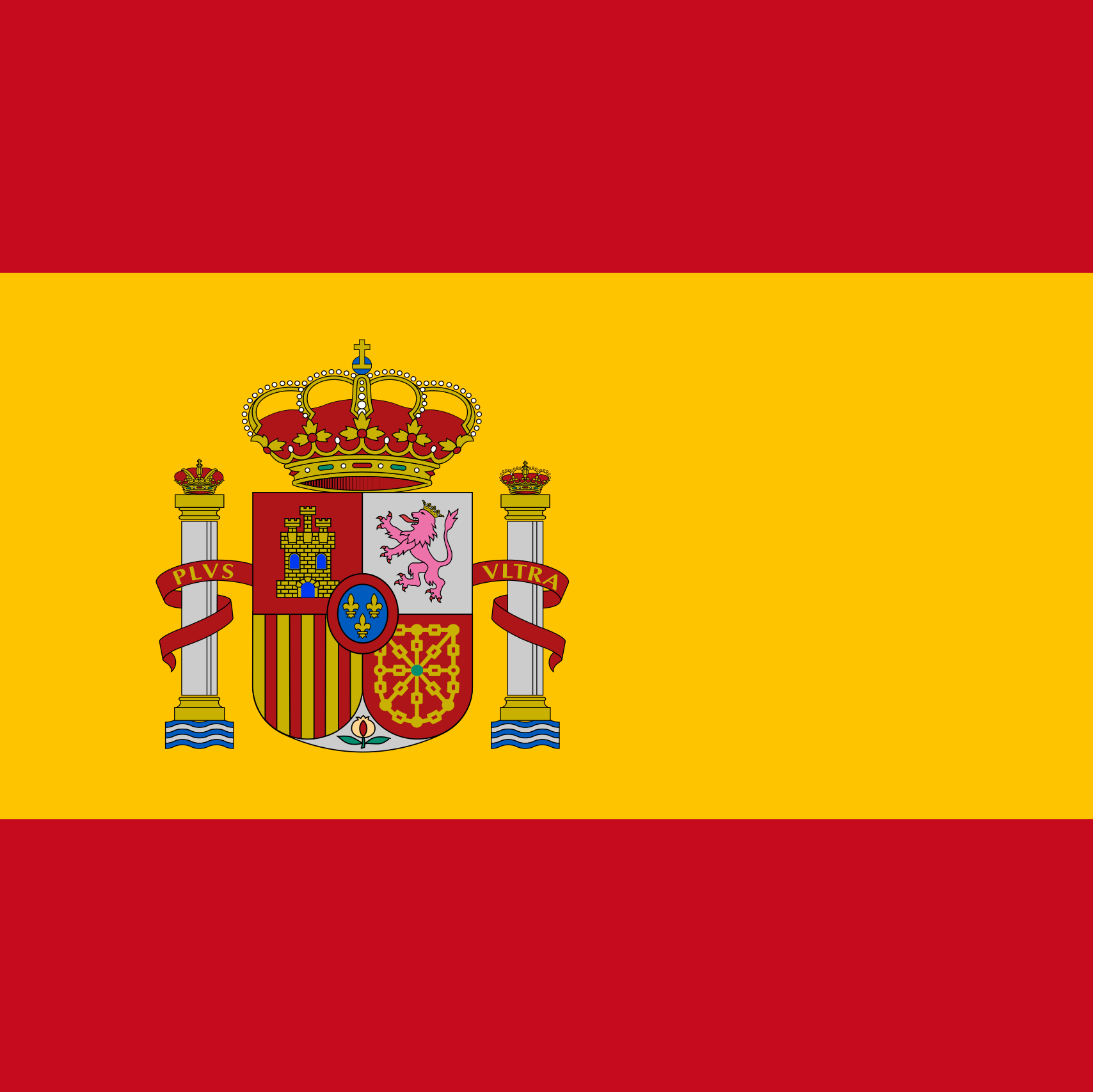
Spain
Barcelona
The Aliant office in Barcelona, Spain, with its third-generation practice, boasts over 50 years of experience assisting clients in legal matters.
The Spanish office provides agile and transparent solutions for comprehensive management, negotiation, and court-related issues.

Spain
Barcelona
The Aliant office in Barcelona, Spain, with its third-generation practice, boasts over 50 years of experience assisting clients in legal matters.
The Spanish office provides agile and transparent solutions for comprehensive management, negotiation, and court-related issues.
Practice Areas
Languages Spoken
Spanish, English, French, Italian
Managing Partner(s)
A team of reliable and experienced lawyers and professionals will advocate for you and your business, providing guidance and defending your interests all over Spain, either in your day-to-day affairs or supporting you with any one-off legal issues that you need them to deal with, negotiate, or defend.
The Spanish Aliant office aims to help clients legally, in their language, and advises on topics that they know well how to defend.
Aliant Spain offers help with taxes, payroll, company law, corporate law, commercial law, real estate, employment law, civil law, family law, criminal law, litigation, etc., and with both local and international issues.
Administration Bankruptcy & Insolvency Business Law Civil Law & Civil Asset Recovery Commercial Agreements Corporate Restructuring Corporate Transactions Family Law Employment & Labor
ImmigrationInternational Investments
International Public Law
International Private LawLitigation Joint Ventures Mergers & Acquisitions Personal Tax Real Estate Law Technology & Ecommerce White Collar Crime & Investigations
Spain offers multiple opportunities to make your live easier either personally or professionally either because the climate, the gastronomy, or the society, and the business stability you can find.
LANGUAGE:
Spanish is one of the most spoken languages in the world, and the country has strength ties with Latham that helps to better business and understanding relationships for you and your business.
BUSINESS:
Foreign friendly: Attending diversity, multiculturalism, security, immigration, procedures, tax obligations, etc. it is necessary to say is quite a friendly and viable country for new foreign, entrepreneurs, and investors, and his European membership allows citizens to operate all over Europe.
Spanish economy is number 14 th in the world by GDP volume. Furthermore, according to the Human Development Index, prepared by the United Nations, progress is indicated in the quality of life that currently surrounds Spaniards. In that sense, the country is in 30 th place in Doing Business, a ranking that classifies countries according to the ease of establishing new businesses. Spain has an important position in several specific fields of innovation such as renewable energy, biotechnology, the pharmaceutical sector, transportation and small and medium-sized technological industries.
Primary economic activities:
The primary economic activities of Spain makes up 2.7% of the total economic or productive activity of the country and the most important productions are barley, wheat, oats, rye, sugar beets, fruit and citrus trees, corn, potatoes, tomatoes, lettuce, legumes and onions, sheep and pigs. Spain is the European leader in organic agriculture with 1,317,539 hectares, which represents 17% of the entire Union.
Secondary economic activities:
At the secondary economic activities, we can mention the production of vehicle parts and
accessories, tires, the pharmaceutical, paper and petroleum derivatives industries and the automotive industry that stands out in the country's secondary economic activities (Spain is the ninth largest automobile producer in the world and the second in Europe (92% of this production is exported). Also agri-food industries such as the production of wines, preserves, dairy products and sausages are also very important.
Tertiary economic activities:
The tertiary sector is the most important in Spain's economy and the largest economic activity, made up of education and health services, government, telecommunications, transportation, entertainment, insurance, tourism, retail trade, etc.
Exports:
The main destinations for Spanish exports are all European: France (17%), Germany (12%), Portugal (10%), Italy (9.3%) and the United Kingdom (6.9%). Spain’s main export products are automobiles, vehicle parts and accessories, medicines, oil and its derivatives, and citrus fruits.
Imports:
The main products that Spain’s economy imports are cars, automobile parts and spare parts, crude oil, packaged medicines, petroleum gas, computers, refined oil, radio broadcasting equipment, coffee, medical instruments, among others.
LOCATION:
Nowadays that globalization is a reality the Iberian Peninsula is surrounded by the Atlantic and the Mediterranean, close to African continent and its geographical configuration with so many mountain and sea has challenged the County to build modern and good freeways, maritime ports, airports and high speed railways’ connections.
SECTORS:
All above combined with global benchmark as fashion market, culture, science, technology and many other sectors such gastronomy, commerce, tourism or new technologies makes our country an optimal place to visit, live or doing business in Spain.
TAXATION
In Spain, the primary direct taxes include:
1. Corporate Tax (IS)
a. Applicable to companies and entities that are tax residents in Spain, taxed on
global income.
b. A company is deemed a tax resident if formed under Spanish law or has its
registered or effective management office in Spain.
2. Personal Income Tax (IRPF)
a. Applicable to individuals and their income.
3. Non-resident Income Tax (IRNR)
a. Applicable to non-residents earning income in Spain.
4. Donation and Inheritance Taxes
a. Imposed on the transfer of assets through donations or inheritances.
The major indirect taxes in Spain are:
1. Value Added Tax (IVA)
2. Transfer and Stamp Tax (ITP and AJD)
Corporate Tax (IS) Details:
- The general corporate tax rate in Spain is 25%.
- Corporate Tax offers incentives for investments, especially in R&D and technological innovation.
- Tax credits are available to prevent double taxation (domestic and international), and an exemption system applies to dividends and capital gains from foreign sources.
- Deductible expenses include accountable ones, with exceptions such as dividends, gratuities, fines, or sanctions.
- Amortization of fixed assets is tax-deductible if effective and accountable.
- Capital gains from asset transfers are considered income and taxed at the applicable rate.
- Positive tax bases can be offset by negative bases from previous tax periods.
Firm Overview
A team of reliable and experienced lawyers and professionals will advocate for you and your business, providing guidance and defending your interests all over Spain, either in your day-to-day affairs or supporting you with any one-off legal issues that you need them to deal with, negotiate, or defend.
The Spanish Aliant office aims to help clients legally, in their language, and advises on topics that they know well how to defend.
Aliant Spain offers help with taxes, payroll, company law, corporate law, commercial law, real estate, employment law, civil law, family law, criminal law, litigation, etc., and with both local and international issues.
Services Profile
Bankruptcy
Corporate Law
Employment & Labor
Family Law
Immigation Law
Tax Law
About Spain
Spain offers multiple opportunities to make your live easier either personally or professionally either because the climate, the gastronomy, or the society, and the business stability you can find.
LANGUAGE:
Spanish is one of the most spoken languages in the world, and the country has strength ties with Latham that helps to better business and understanding relationships for you and your business.
BUSINESS:
Foreign friendly: Attending diversity, multiculturalism, security, immigration, procedures, tax obligations, etc. it is necessary to say is quite a friendly and viable country for new foreign, entrepreneurs, and investors, and his European membership allows citizens to operate all over Europe.
Spanish economy is number 14 th in the world by GDP volume. Furthermore, according to the Human Development Index, prepared by the United Nations, progress is indicated in the quality of life that currently surrounds Spaniards. In that sense, the country is in 30 th place in Doing Business, a ranking that classifies countries according to the ease of establishing new businesses. Spain has an important position in several specific fields of innovation such as renewable energy, biotechnology, the pharmaceutical sector, transportation and small and medium-sized technological industries.
Primary economic activities:
The primary economic activities of Spain makes up 2.7% of the total economic or productive activity of the country and the most important productions are barley, wheat, oats, rye, sugar beets, fruit and citrus trees, corn, potatoes, tomatoes, lettuce, legumes and onions, sheep and pigs. Spain is the European leader in organic agriculture with 1,317,539 hectares, which represents 17% of the entire Union.
Secondary economic activities:
At the secondary economic activities, we can mention the production of vehicle parts and
accessories, tires, the pharmaceutical, paper and petroleum derivatives industries and the automotive industry that stands out in the country's secondary economic activities (Spain is the ninth largest automobile producer in the world and the second in Europe (92% of this production is exported). Also agri-food industries such as the production of wines, preserves, dairy products and sausages are also very important.
Tertiary economic activities:
The tertiary sector is the most important in Spain's economy and the largest economic activity, made up of education and health services, government, telecommunications, transportation, entertainment, insurance, tourism, retail trade, etc.
Exports:
The main destinations for Spanish exports are all European: France (17%), Germany (12%), Portugal (10%), Italy (9.3%) and the United Kingdom (6.9%). Spain’s main export products are automobiles, vehicle parts and accessories, medicines, oil and its derivatives, and citrus fruits.
Imports:
The main products that Spain’s economy imports are cars, automobile parts and spare parts, crude oil, packaged medicines, petroleum gas, computers, refined oil, radio broadcasting equipment, coffee, medical instruments, among others.
LOCATION:
Nowadays that globalization is a reality the Iberian Peninsula is surrounded by the Atlantic and the Mediterranean, close to African continent and its geographical configuration with so many mountain and sea has challenged the County to build modern and good freeways, maritime ports, airports and high speed railways’ connections.
SECTORS:
All above combined with global benchmark as fashion market, culture, science, technology and many other sectors such gastronomy, commerce, tourism or new technologies makes our country an optimal place to visit, live or doing business in Spain.
TAXATION
In Spain, the primary direct taxes include:
1. Corporate Tax (IS)
a. Applicable to companies and entities that are tax residents in Spain, taxed on
global income.
b. A company is deemed a tax resident if formed under Spanish law or has its
registered or effective management office in Spain.
2. Personal Income Tax (IRPF)
a. Applicable to individuals and their income.
3. Non-resident Income Tax (IRNR)
a. Applicable to non-residents earning income in Spain.
4. Donation and Inheritance Taxes
a. Imposed on the transfer of assets through donations or inheritances.
The major indirect taxes in Spain are:
1. Value Added Tax (IVA)
2. Transfer and Stamp Tax (ITP and AJD)
Corporate Tax (IS) Details:
- The general corporate tax rate in Spain is 25%.
- Corporate Tax offers incentives for investments, especially in R&D and technological innovation.
- Tax credits are available to prevent double taxation (domestic and international), and an exemption system applies to dividends and capital gains from foreign sources.
- Deductible expenses include accountable ones, with exceptions such as dividends, gratuities, fines, or sanctions.
- Amortization of fixed assets is tax-deductible if effective and accountable.
- Capital gains from asset transfers are considered income and taxed at the applicable rate.
- Positive tax bases can be offset by negative bases from previous tax periods.
Spain Office Attorneys

Spain
Business Law, Data Privacy, Real Estate Law

Spain
Employment & Labor, Litigation

Spain
Employment & Labor

Spain
Employment & Labor

Spain
Immigration

Spain
Business Law, Commercial Agreements, Corporate Transactions, Employment & Labor, Litigation, Real Estate Law

Spain
Litigation

Spain
Business Law, Commercial Agreements, Corporate Transactions, International Investments, Joint Ventures, Mergers & Acquisitions, Real Estate Law

Spain
Business Law, Commercial Agreements, Corporate Transactions, Litigation, Real Estate Law

Spain
Employment & Labor
